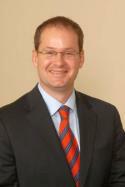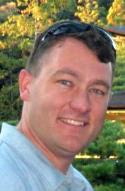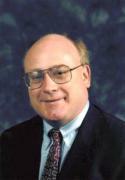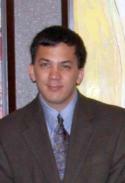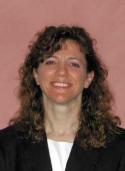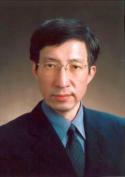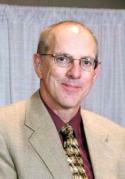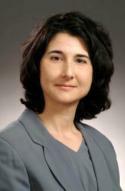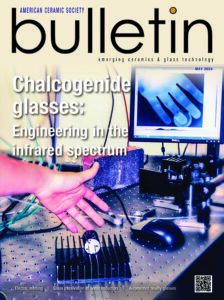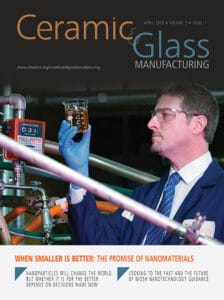“Like many of my colleagues, I joined the American Ceramic Society as a student. And 20 years later, that almost unconscious decision has paid back incalculable dividends principally because of the volunteer opportunities that are critical to the operations of many professional societies. My original introduction was through an ACerS student chapter. These local groups are necessarily all-volunteer and they represent for many the first steps towards professional development. More importantly is that you are working together with your classmates who, in many cases, become your life-long friends and colleagues with whom you seek guidance and fellowship for the rest of your career. To this day, many of us stay in touch and it was the camaraderie of those student chapter events that laid the foundation for these relationships. Over the years, I’ve had the pleasure to serve on a number of award committees, division committees, conference organizational groups, and as an associate editor of the Journal of the American Ceramic Society. There are clear tangible and intangible benefits of such volunteer service positions. The tangibles are added experience in organizational dynamics, management, and running meetings and conferences as well as added visibility (particularly important for junior faculty or members starting their careers) and the opportunity to meet world class scholars from your field and others. The intangibles include a sense of giving back to the profession that is affording you daily intellectual rewards and the aforementioned personal relationships that, in many ways, become a very real motivation to attend meetings: I want to see my friends! And the beauty of all this is that it takes very little time relative to the pay-back.
Volunteerism is about leadership and leadership is not about your title, position, or age but about the everyday choices made as you encounter things that help others.”
“I was involved with our local ACerS Student Branch when I was an undergrad and was lucky enough to be chosen as a delegate to the ACerS/NICE Student Congress. That opportunity was really what got me interested and involved in the Society on the national level, and now a decade later, I’m involved in my local Section, my Division, and helping to mentor the new student-run PCSA. Of course, the social aspects of meeting new and old friends make attending technical meetings a lot of fun, but it always amazes me how often the connections that I’ve made through my involvement in the Society end up helping me as a researcher. One of the great things about ACerS is that, depending upon your interests and the amount of time you have available, there are so many different ways that you can get involved. Regardless of how you choose to volunteer, you’ll reap the benefits of becoming more connected within the ceramics community, both personally and professionally.”
“As a member of the American Ceramic Society for over three decades, I have been continually impressed with its ability to serve its members on several fronts: opportunities for professional development, stewardship of resources, and advancing the science and technology of ceramics. But it’s the professional and personal development opportunities that were enabled by my membership in ACerS that have most profoundly impacted me through my career.
As a student member, I was fortunate to interact with ceramics students from other universities at the Society’s many technical meetings, to discover the “Who’s Who” in ceramics, to expand my knowledge of ceramic science and technology, and to benefit tremendously from mentoring by many ACerS members. Throughout my career as a materials scientist, the ceramics community has been my home, and I have sought ways to give back all that it given to me, and hopefully more!
Volunteering my energy and enthusiasm for all things related to the study of ceramics has been my “coin of the realm!” As a faculty member, my volunteerism naturally focused largely on the development of our newest members – our students. In my case, it started rather small, first as an officer in my Keramos Chapter and ACerS Student Branch. The service orientation I encountered there carried on to increasingly important activities in the ACerS, such as Ceramographic Exhibit Chairman, Presidential Advisory Boards, Nominating Committee, chairing the Education Integration Committee, session and symposium chair, serving through the officer chains in the Ceramic Educational Council, NICE, and Keramos National Professional Ceramic Engineering Fraternity, ACerS Fellows Committee, and the ACerS Board of Directors. Each was a learning process, and coincidentally allowed me to enhance my friendships and interactions with other members of ACerS and the materials community.
Volunteering and serving, it’s my way of giving back. And the more I do, the more my own life and career is enhanced with new friendships, knowledge, capabilities, and ideas. Sure, it’s frequently hard work, and takes a lot of time. But it comes with lots of enjoyment and satisfaction in making a difference. And, the friends and relationships you gain will last a lifetime. That’s one of the strengths of ACerS of which we should all be proud!
My advice to others who are considering adding service and volunteering to their careers? Well, first of all, don’t be shy! Those mentors (I used to refer to them as “grey beards” until I sprouted one myself!) who are “running the show” in the community are always open to new ideas and fresh energetic volunteers; ask where you can help and there will be no shortage of ways to contribute cast before you! You’ll learn a lot. Secondly, choose wisely: select an area in which you will enjoy putting your energy and ideas. And most importantly, keep an open mind, and don’t take yourself too seriously. There are lots of good ideas out there, and plenty of great colleagues with whom to work to make those ideas a reality. Embrace that concept, and then you’ll be in a position to make a difference! That’s what leadership is about.
I hope you encounter the same.”
“I first became involved with ACerS while I was earning my undergraduate degree at the University of Missouri – Rolla. Being in a Ceramic Engineering department, which was relatively small compared to the big traditional engineering departments on campus (Civil, Electrical, Mechanical), activities with the department like involvement in student groups was stressed. As I became involved in the ACerS student chapter and the Keramos Ceramic honor fraternity I found more and more opportunities to serve and to lead through participation.
While an undergraduate I served as the UMR ACerS Student Chapter Treasurer and Vice President and attended the ACerS Student Congress in Cocoa Beach several years. I also served in several offices in our local Keramos Chapter and as the Keramos National Executive Board Student Representative for two years. All of these experiences instilled in me the importance of being involved with other ceramic engineering professionals and the opportunities that could be opened up to you through such involvement. Through contacts I made through these activities I ended up attending Georgia Tech for my Masters degree and interning for a summer at Oak Ridge National Laboratory where I would later return to do my PhD research and eventually for a Post Doctoral appointment which led to my current employment there.
After completing graduate school and starting my professional career, I was slow to reconnect with ACerS as a professional, as opposed to a student. Yet, as I began to interact with old contacts I had made during my student participation with ACerS, I again began to see the importance of being involved with the society, specifically through participation with the Refractory Ceramics Division. I was quickly brought in to participation on the RCD Executive Board as a member at large which led to my participation on the Programs and Meetings Committee and then to my co-chairing of the annual Saint Louis Section/Refractory Ceramics Division Symposium for several years. My participation then led to serving on the Executive Committee officer rotation where I have served as Secretary and am now Vice Chair. This involvement in RCD has not only helped me to gain contacts across the field of refractory ceramics whom I could call about any issue I may have a question about or could contact about teaming on a project, but has also opened opportunities to serve on international meeting committees and to meet and interact with people who are among the most well known and respected in the field of ceramic engineering. I have also made many friends through my involvement with ACerS which I hope last through the remainder of my career and beyond.
Finally, my participation in ACerS has brought me the satisfaction of being able to say that I am trying to make a difference and to change our profession for the better. It is too easy as a young professional to sit back and think that those who have been at this longer should be responsible for shaping and maintaining the field of ceramic engineering. If there is one thing I have learned through my participation as a student and now as a young professional, it is that those who have been “in charge” for a while generally welcome the participation of the younger members with open arms. It is our responsibility to step up and join in.”
“I started volunteering for ACerS committees as soon as I became a full time employee. Since the business I work in has few ceramic engineers, I first volunteered because it provided an opportunity for me to communicate with the other ceramic engineers across our site. Over the years, it has continued to provide an opportunity for me to communicate with other ceramic engineers in similar industries, in academia, and in other ceramic industries. I find it easier to stay involved with the latest changes and new materials being developed through this participation. Now that I am a manager, it also provides me a opportunity to talk to others in management positions within the ceramics industry to discuss the challenges we all are facing. In my division, I have participated on all of our committees, which has allowed me to meet a different set of people with each committee. I have enjoyed learning and understanding the different perspectives that each of the committees holds. I particularly enjoyed my opportunities on the Education Integration committee and some of the leadership committees, which I participated on as Vice-Chair and Chair of the division. These committees allowed to meet many of the ACerS staff and to better understand the workings of the society.
While finding the time to volunteer is always difficult, I find it manageable because it is not an all year long activity. Most of the activities occur at the annual meetings or in very distinct time segments in the year, so the time investment has been relatively small. It is well worth the effort when you see a program come together or have the honor of presenting an achievement award to a fellow member.”
“I initially became involved in the Nuclear and Environmental Technology Division at the urging of the late Tom Rankin. As a young engineer, I started working on the NETD membership committee and then became involved in the program committee. I later became the NETD Program Chair and organized a symposium at the Annual Meeting. At that time, I realized the value of becoming involved in a technical society through the many professional and personal contacts that I made and the knowledge I obtained by actively participating in technical meetings. As I worked my way through the NETD leadership positions, I also became involved in various ACerS committees primarily in the publications arena. I found it rewarding to work with professionals from other ceramic technical areas to help develop and guide the direction of ACerS publications and to work with the staff at ACerS that truly respected our opinions. Through my volunteer efforts within the society, I have made numerous contacts and friends – this has proven worthwhile whether just “having a beer” with a colleague at a meeting, procuring goods or services from a company or collaborating with fellow researchers on technical projects.”
What I first volunteered was to review a paper submitted to JACerS some 20 years ago. It was a very valuable experience since I could learn how manuscripts are reviewed. Since then I have done a variety of volunteers including Symposium Organizers for the Annual Meetings, MS&T and Cocoa Beach (or Dayotna Beach) conferences, Associate Editors of JACerS and IJACT, Editors of ACerS publications like Ceram. Trans., etc.
What are the benefits of volunteering? My English teacher taught me that “volunteering” means an activity where you should not expect your own benefits. But, actually there are plenty of benefits in volunteering for ACerS. The most important and beneficial thing is the worldwide human network. Through these volunteer activities, I could know many people over the world who volunteered for ACerS, and (since they did not expect personal benefits) rigid human network was quickly formed.
“I did not originally “volunteer” to serve ACerS, but I was asked if I would be interested in participating as the Membership Committee Chair for the Electronics Division. I gladly, and immediately accepted, since at that time, I had not been asked to do much service for any of the organizations of which I was a member. To this day, I view this as an important decision that has contributed to my career success and my professional development. Eventually, with several more years of service, I went on to serve as the Chair of the division, a leadership role that has been held by many folks whom I hold in the highest regard. So in some sense, I view service as both a duty and an honor, though as I discuss below, there are many other important aspects to serving the Society.
I’m a true believer in the role of service in one’s career. While it’s unlikely you’ll know exactly what will be involved when you say “yes” to such an opportunity, I can guarantee that you will be richly rewarded through the development of new skills. Outcomes of your service contributions will include running effective meetings, getting people to do things, particularly when they’re volunteers, and developing management and leadership skills. You’ll learn some things to do, and equally important, you’ll learn some things not to do. There’s nothing quite like on the job training or pushing yourself outside of your comfort zone to expand your skills. Since service involves the “soft skills” side of the profession, participating in one of the division or another service role in the Society is a great way to build these skills, or if you think you already have them, to further develop them. You’ll also get exposed to different perspectives, both technically, and how to do things. These are invaluable experiences that will broaden the way you look at things and tackle problems, on either the technical or soft skills issues.”
“I joined ACerS when I was a junior faculty member and was starting to carry out research on ceramic materials and teach an introduction to ceramics course. Attending the national meeting was both informative and enjoyable. On a personal level I enjoyed meeting the people behind cutting edge research on ceramics, while on a professional level I picked up samples and case studies for use in my class. Attending the talks also gave me valuable new ideas for my research. My first volunteer experience was serving on the Member Services committee after having been nominated for service by a colleague. It was both a pleasure and a responsibility to serve on a committee that ensures that the Society continues to meet the evolving needs of the membership.
Being a volunteer helped me get to know how the Society functions to a far greater extent than I had before volunteering. This knowledge has allowed me better mentor the junior faculty in my department.
Volunteering does take time, but the dividends far exceed the cost with respect to time.
I encourage all members to get involved with societal activities. Contributing to the development and improvement of a technical society as important as ACerS is satisfying on a personal level and can significantly enhance professional development across multiple levels.”
Subscribe to Ceramic Tech Today

Don’t miss the latest ceramic and glass materials news. Receive the CTT newsletter to your email three times a week by subscribing at this link.
Subscribe to Ceramic & Glass Manufacturing Weekly

Don’t miss the latest ceramic and glass business news. Receive the C&GM Weekly newsletter to your email every Monday by subscribing at this link.

